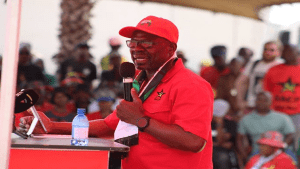Political analysts say with the new Government of National Unity (GNU), Parliament of South Africa can expect more robust debates and that President Cyril Ramaphosa’s executive should prepare itself for heightened accountability and stronger oversight.
With opposition parties now featuring in government, their role of holding the ruling party to account has been questioned. But analysts say Parliament’s oversight role of the executive, will be kicked into a higher gear.
Even though the bulk of ministers are still ANC members, with the party having only 40 % of the vote, the make-up of Parliamentary committees will change.
“In the past, ANC could with its majority literally force policy through the legislature. In other words, the legislature was almost no impediment to interest of executive, but this will certainly be different now. Just the debate will be more competitive, there will also be a greater contest of ideas,” says Dr Piet Croucamp of North West University.
“The tradition in our country is that the ANC has not only had cabinet, it also had Parliament. It’s also had the benefit of being the only party to have chairs across Parliament and that’s actually weakened accountability a lot. So having a multiparty government would then translate it would seem into having multi-party chairs, across Parliament as well. That may seem like it may weaken Parliamentary power, I don’t think it weakens Parliamentary power and I don’t think it weakens accountability in cabinet. I think it strengthens accountability in cabinet and Parliament,” says Tessa Dooms, Director of Programmes at the Rivonia Circle.
As for traditionally opposition party members in executive positions, and how they execute their functions. It’s important to remember that ministers across all parties, are bound by the same cabinet protocol.
“There may be things that a DA minister may not like in the agricultural policy, then he or she can take that to cabinet and say there are things we would like to change, and you then have the opportunity to try and persuade your peers there but once a cabinet decision is made. You have to defend the policies of the government of the day,” says Dr Harlan Cloete, Research Fellow at UFS.
This too will be a positive, promoting real engagement between parties.
The success of this structure they say, hinges on all GNU parties not looking out for their own interests.






